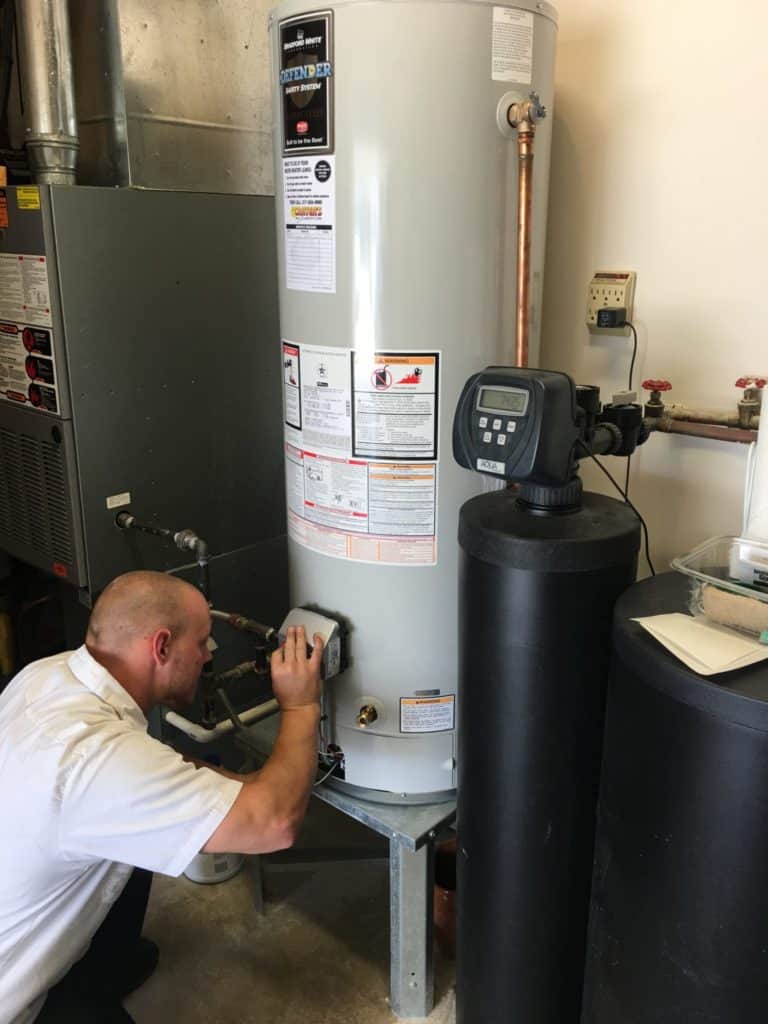Facing the Usual Hot Water Heater Emergency Challenges
Facing the Usual Hot Water Heater Emergency Challenges
Blog Article
On this page in the next paragraph you might get lots of superb help and advice pertaining to Common Hot Water Heater Problems.

A hot water heater is one of one of the most crucial basic appliances that can be found in a residence. With water heaters, you do not require to experience the stress of heating water by hand every time there is a need to wash, do the laundry, or the meals. There is constantly an opportunity that your water heating system would act up as with most mechanical devices.
It is important to note any kind of little malfunction and tackle it quickly before things leave hand. The majority of times, your water heater begins to malfunction when there is an accumulation of debris as a result of continuous use. As a precaution, routine flushing of your water heater is recommended to avoid sediment accumulation and stop functional failing.
Common water heater emergency situations and exactly how to deal with them
Insufficient warm water
It may be that the water heating system can't sustain the hot water demand for your house. You could upgrade your water heater to one with a larger capacity.
Fluctuating water temperature.
Your water heater can start creating water of different temperatures generally ice scalding or cool hot. In this circumstance, the first thing you do is to make sure that the temperature is set to the wanted level. If after doing this, the water temperature level keeps changing throughout showers or other tasks, you might have a faulty thermostat. There could be a need to replace either the home heating or the thermostat system of your hot water heater.
Leaky water heater storage tank.
In this scenario, you ought to turn off your water heating system, permit it to cool down, as well as very carefully look for the resource of the trouble. At times, all you need to do is to tighten a few screws or pipe connections in cases of minor leaks. If this doesn't work and the leak persists, you might require to use the solutions of a technician for a suitable replacement.
Blemished or stinky water
When this occurs, you require to know if the issue is from the water or the storage tank resource. If there is no amusing odor when you run chilly water, after that you are certain that it is your water heating system that is malfunctioning. The smelly water can be caused by corrosion or the accumulation of microorganisms or debris in the water heater storage tank.
Final thought
Some house owners disregard little warning and minor faults in their water heater unit. This just leads to further damage and also a feasible total malfunction of your appliance. You ought to handle your hot water heater faults as soon as they come up to stay clear of even more costs and unneeded emergency troubles.
With water heating systems, you do not need to go with the stress of heating water by hand every time there is a need to take a bath, do the washing, or the recipes. It may be that the water heating unit can not sustain the warm water demand for your house. Your water heating unit can begin producing water of different temperature levels normally ice hot or cool warm. If there is no amusing odor when you run chilly water, then you are certain that it is your water heater that is faulty. The odiferous water can be caused by corrosion or the build-up of germs or sediments in the water heating system container.
Common Water Heater Issues and What You Should Do
What Type of Water Heater Do You Have?
Before we begin it’s first important that you identify the type of water heater you have on your property. There are two main types of water heaters out there: conventional and high efficiency.
Both of these types of products typically use either gas or electricity to heat power. There are also solar water heaters that use a thermal collector on the roof or yard to heat the water.
While these models are not as common, they can cut heating costs in half. In this article, we will focus on conventional and high efficiency.
How Do My Electric and Gas Water Heater Work?
Though they look similar, electric and gas water heaters work very differently. It’s important to know their basic function because often problems can be specific to the heating source.
In the electric model, a thermostat on the side of the machine detects the temperature of the water in the tank. When the temperature needs to rise electricity flows to a heating element suspended in the water.
Gas models also use a thermostat device — typically with a mercury sensor at the tip and an additional sensor called a thermocouple. The thermocouple detects whether the pilot light is on and controls the flow of gas.
When the thermostat drops below the appropriate level gas is released which becomes ignited by the pilot light. The flame heats the bottom of the water tank which causes hot water to rise and cold water to drop.
This natural circulation continues until the water reaches the desired temperature. Then, the thermostat triggers the gas control valve to shut off the flow of gas.
What Are the Most Common Issues and How Do You Fix Them?
https://happyhiller.com/blog/common-water-heater-issues-and-what-you-should-do/

Hopefully you liked our section on Common Hot Water Heater Problems. Thanks for finding the time to read through our short article. Are you aware of anybody else who is sincerely interested in the niche? Do not hesitate to promote it. I appreciate reading our article about Common Hot Water Heater Problems.
Toilet overflow? Dial! Report this page